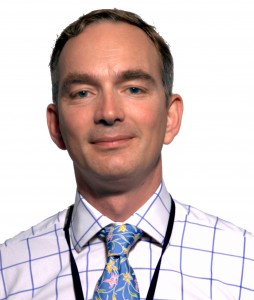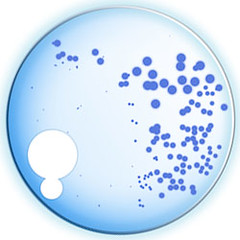 Education is a core area of our mission. I would like to personally thank all who have contributed to any part of this agenda at either Faculty or College level. The first of these is development of our action programme for continually improving the Student Experience. You will have seen the messages from the Rector on this subject, and I would like to thank you for the contributions you have made to developing the Faculty’s approach – a draft action programme has now gone forward for discussion at College level, and there will be further communication on this ongoing programme in the New Year.
Education is a core area of our mission. I would like to personally thank all who have contributed to any part of this agenda at either Faculty or College level. The first of these is development of our action programme for continually improving the Student Experience. You will have seen the messages from the Rector on this subject, and I would like to thank you for the contributions you have made to developing the Faculty’s approach – a draft action programme has now gone forward for discussion at College level, and there will be further communication on this ongoing programme in the New Year.
Nationally, discussion is gathering pace among the UK medical schools, and with the GMC, on building stronger curricula for training the nation’s doctors through sharing of knowledge and best practice. The Medical Schools Council Assessment Alliance [MSC-AA] was set up to look at establishing common elements of assessment practice at a national level – where sharing of knowledge and material amongst the schools is anticipated to drive up clinical quality [not that we have had a personal concern in this regard!]. One example of our input into this agenda is in the area of prescribing – research has highlighted the need for improvement in prescribing skills amongst Foundation trainees, and Imperial experience in developing learning and examination programmes in this area is helping to inform development of a national Prescribing Skills Assessment. Other MSC-AA developments to which Imperial is contributing include a shared question bank for elements of final exams and new processes for recruitment into Foundation Year training programmes, using Situational Judgement Tests.
In terms of prizes these included, the Rector’s Award for Excellence in Supporting the Student Experience given to Dr Emma Watson, Ms Jo Williams, Ms Julia Cork and Mr Chris Harris and Dr Kevin Murphy and Professor Helen Ward received the Rector’s Award in Excellence for Teaching. This year we introduced new Awards to recognise the vital contributions made by our Personal Tutors. Nominations were made by the students, and we were delighted to see these inaugural awards go to Dr Samia Girgis from the Department of Medicine, and Miss Elizabeth Owen, Consultant in O&G at the West Middlesex University Hospital. We were immensely proud of Dr Matko Marlais and Dr Nishma Manek who were awarded the Gold Medal and Betuel Prizes for the best performances in Finals across all the London Medical Schools.
This year sees Dr Nicola J Rogers take up the College post of Director of Student Recruitment and Admissions; many of you will know Nicky from her extensive teaching role, and for her leadership of postgraduate education. We have been delighted also to retain Mr Chris Harris within the Faculty; he moved from his post within the Department of Medicine to take up the role of Quality and Enhancement Manager within the Faculty Education Office.
Of course, our curricula are designed not just to create great doctors, but also outstanding scientists. This year has seen successful implementation of the final year of the Pharmacology and Translational Medicine Science BSc. We also successfully piloted the awarding of extra ECTS[1] to pharmacology students for approved extramural activities. A new programme for the BSc in Biomedical Science has also been developed, to be led solely by the Faculty of Medicine. The programme, which was revised and re-sequenced to harness strengths from across the Faculty, has been approved by Senate with effect from 2012.
In postgraduate development – we have made significant progress working with the NWThames Foundation School to continue to develop our academic programme which provides a quality grounding in core clinical competencies, complemented by strengthened focus on academic development. The programme brings the cohort together as a peer group during their programme and enables them to gain experience in academic activity through project work and research/education skills training. The ultimate objective is to provide trainees with a strong academic skill-set with which to apply for Academic Clinical Fellowships and other schemes, seeding the clinical academic community of the future.
On the postgraduate research side, I am delighted to welcome Dr Laki Buluwela (Department of Surgery and Cancer) into his new role as Faculty Lead for Doctoral Degrees. This new role will focus on ensuring a quality postgraduate research environment, maintaining an overview of all FoM doctoral provision. With the increased focus across Research Councils [RC] on doctoral training in key strategic areas, this will be a key post in ensuring Imperial presents its strong case for continuing to attract RC doctoral funding. Read more about Laki’s ambition for the role in his own blog entry.
 Finally, many thanks to all who have given their time to help with the development of the Lee Kong Chian School of Medicine in Singapore. This has been an intensive year and required every ounce of the leadership shown by Prof Martyn Partridge, ably assisted by Dr Naomi Low-Beer. Senate considered a suite of paperwork setting out the plans for establishment of a joint Imperial/NTU MBBS with effect from August 2013 at its meeting last week, and I am delighted to say this has been approved. Of course, there is plenty more to do before the first cohort arrives in 2013, but approval from Senate is a major step along the path, and a great way to close the year! We are now at the stage of recruiting to key posts within the new School, and are pleased to announce that Prof Mike Ferenczi has taken up the post of Assistant Dean and Head of Years 1 & 2, from August 2012. Also, Dr Katie Wynne is taking over from Dr Tanya Tierney as Head of Graduate Entry Year 1 following Tanya’s appointment as Assistant Dean, Head of Simulated Patients Programme and Communications Training and Head of Welfare. For those that wish to follow progress there is a newsletter: http://www1.imperial.ac.uk/resources/99C81850-548E-4900-A6D8-1012392B4DEE/theleekongchianschoolofmedicinenewsletterissue4.pdf
Finally, many thanks to all who have given their time to help with the development of the Lee Kong Chian School of Medicine in Singapore. This has been an intensive year and required every ounce of the leadership shown by Prof Martyn Partridge, ably assisted by Dr Naomi Low-Beer. Senate considered a suite of paperwork setting out the plans for establishment of a joint Imperial/NTU MBBS with effect from August 2013 at its meeting last week, and I am delighted to say this has been approved. Of course, there is plenty more to do before the first cohort arrives in 2013, but approval from Senate is a major step along the path, and a great way to close the year! We are now at the stage of recruiting to key posts within the new School, and are pleased to announce that Prof Mike Ferenczi has taken up the post of Assistant Dean and Head of Years 1 & 2, from August 2012. Also, Dr Katie Wynne is taking over from Dr Tanya Tierney as Head of Graduate Entry Year 1 following Tanya’s appointment as Assistant Dean, Head of Simulated Patients Programme and Communications Training and Head of Welfare. For those that wish to follow progress there is a newsletter: http://www1.imperial.ac.uk/resources/99C81850-548E-4900-A6D8-1012392B4DEE/theleekongchianschoolofmedicinenewsletterissue4.pdf
Many thanks to all and warm wishes for an enjoyable Christmas break.
Professor Jenny Higham
Deputy Principal, Faculty of Medicine
[1] European Credit Transfer and Accumulation System
Read FoM Education – a look back at 2011 in full





 Mr Martin Lupton (previously one of the Deputy Directors of Education) has been appointed as Head of Undergraduate School of Medicine. Martin took some time to speak to us about his new role, what the reorganisation means for medical students and how he believes the university education experience will evolve in the coming years.
Mr Martin Lupton (previously one of the Deputy Directors of Education) has been appointed as Head of Undergraduate School of Medicine. Martin took some time to speak to us about his new role, what the reorganisation means for medical students and how he believes the university education experience will evolve in the coming years.
 Innovation and tutoring in the Faculty of Medicine were recognised in the first annual
Innovation and tutoring in the Faculty of Medicine were recognised in the first annual  The data from the survey is being analysed – we will be working to identify some key activities to improve communication across the Faculty and in particular improve communication across the campuses which appeared to be a concern for a lot of those that responded. It also appears that information flows across all areas in the Faculty aren’t ideal at present so again, we will be looking at what could be done to improve this.
The data from the survey is being analysed – we will be working to identify some key activities to improve communication across the Faculty and in particular improve communication across the campuses which appeared to be a concern for a lot of those that responded. It also appears that information flows across all areas in the Faculty aren’t ideal at present so again, we will be looking at what could be done to improve this.












